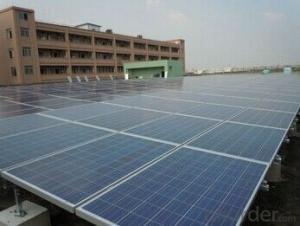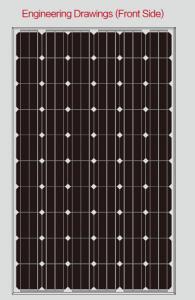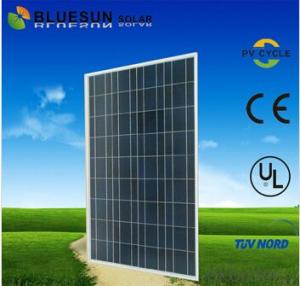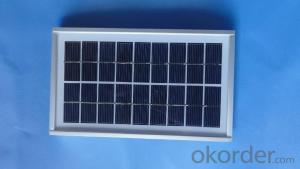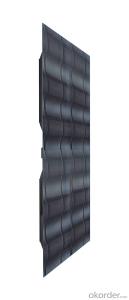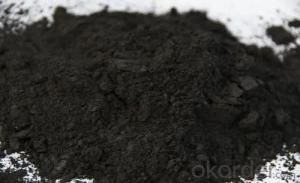75W-100W Mono Solar Panels, Solar System
- Loading Port:
- Shanghai
- Payment Terms:
- TT OR LC
- Min Order Qty:
- 200 pc
- Supply Capability:
- 99999 pc/month
OKorder Service Pledge
OKorder Financial Service
You Might Also Like
75W-100W Mono Solar Panels, Solar System
Specifications
1. 75-100W Mono crystalline solar
2. Super quality competitive price
3. solar system
Product Description
Material: Monocrystalline Silicon
Size: 1205*545*35mm
Number of Cells: 36
Max. Power: 75-100
Voc[V]: 21.8-22.6
Isc[A]: 4.85-6.03
Vmp[V]: 18.0-18.7
Imp[A]: 4.17-5.34
Module area [m]: 0.66
Module weight [kg]: 8
Features
High module conversion efficiency, through superior manufacturing technology Guaranteed -1% to +3% Power Tolerance Entire module certificated to withstand high wind loads and snow loads (5400Pa) Anodized aluminum is mainly for improving corrosion resistance.
Highly transparent, low-iron, tempered glass, and antireflective coating Excellent performance under low light environments
Benefits
25-year warranty on power output; 5-year warranty on materials and workmanship Product liability insurance
Local technical support
Local warehousing
48 hour-response service
Enhanced design for easy installation and long term reliability
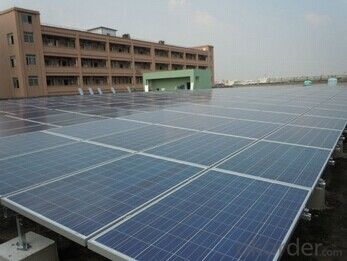
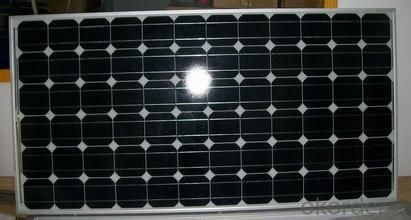
FAQ
Is solar power difficult to use?
Although the production of solar panels incorporates a high-tech manufacturing process, it is really very easy to use a photovoltaic system. Solar panels have no moving parts to wear out, they can be used alone or in combination with other energy sources, and they are silent, reliable and long lasting.
What can you power with Photovoltaics?
A properly designed photovoltaic system can supply electricity for many applications, from small remote lighting needs to megawatts of power for large utility companies. An advantage of photovoltaic power is that it can do anything a traditional power generator can do, only without consuming pollution-causing fuel, or requiring noisy motors.
What is a PV system?
A PV system consists of all the equipment and materials needed to generate solar energy, including solar panels (often called modules), a support structure, wiring, an inverter, a meter and other equipment as required by a specific application. JUST-SOLAR's PV system for commercial buildings, and ET Solar system for residential uses are examples of complete PV systems.
What is a solar module?
Solar modules are series of solar cells, wired together and enclosed protect them from the environment. They are often referred to as in self-contained glass units to solar panels as well.
How do solar cells work?
Solar cells are solid-state devices in which photons (or packets of light) collide with atoms. This process transforms the resulting into electrons. These electrons flow into wires connected to the cell, thus providing electric current to appliances, lighting systems or other electrical loads; and all of the power comes directly from the sun.
What is Photovoltaic Power?
Photovoltaic (PV) power is a term used to describe the process of converting sunlight into electricity with solar cells. These cells are specially constructed from semiconductor materials, and are treated to generate a flow of electricity when sunlight shines on them
- Q:I need to know how do solar panels work. I need to know what are they made of.
- The term solar panel is best applied to a flat solar thermal collector, such as a solar hot water or air panel used to heat water, air, or otherwise collect solar thermal energy. But 'solar panel' may also refer to a photovoltaic module which is an assembly of solar cells used to generate electricity. In all cases, the panels are typically flat, and are available in various heights and widths.
- Q:Can solar panels be used to power a disaster relief operation?
- Yes, solar panels can be used to power a disaster relief operation. They provide a reliable and renewable source of energy, which can be harnessed to power various essential operations such as communication systems, medical equipment, lighting, and water purification systems. Solar panels are particularly useful in disaster-stricken areas where conventional power sources might be disrupted or unavailable. They are portable, easy to set up, and can provide a sustainable energy solution during critical situations.
- Q:If this was sold back to the grids what would be the profit i would stand to make per day on energy received in these panels? How did you come up with this answer?
- Considering capital outlays, such a system might never recover its initial investment. That's why we don't see such small photovoltaic plants popping up around the country - the economic case isn't there. One of the problems is that you would have to sell your electricity wholesale, at a ridiculously low price like 2 cents / kWh. If you were displacing electricity that you would otherwise use, then the financial case is different. Retail electricity could be 20 cents / kWh, 0 times as much, and you could get your money back over time, and start to make a profit. I've assumed you're in the US, with no special feed-in tarrifs. If you're in a country with a premium rate for solar-generated electricity, the business case could be very different.
- Q:Can solar panels be used to power a greenhouse?
- Yes, solar panels can be used to power a greenhouse. Solar panels convert sunlight into electricity, which can then be used to power various electrical systems in a greenhouse, such as lighting, ventilation, heating, and irrigation. This renewable energy source offers an environmentally friendly and cost-effective solution for greenhouse operations.
- Q:Can solar panels be used in areas with high levels of sand or dust deposition?
- Yes, solar panels can be used in areas with high levels of sand or dust deposition. However, the accumulation of sand or dust on the surface of solar panels can reduce their efficiency. Regular cleaning and maintenance of the panels are necessary to ensure optimal performance in such environments. Additionally, the tilt and positioning of the panels can be adjusted to minimize the impact of sand or dust deposition.
- Q:How do solar panels impact the environment?
- Solar panels have a positive impact on the environment as they generate clean, renewable energy without emitting harmful greenhouse gases or pollutants. They help reduce reliance on fossil fuels, decrease air and water pollution, and combat climate change, making them a sustainable and environmentally friendly choice for energy production.
- Q:Hey guys :)Well I'm in the middle of doing my PSHCE coursework on sustainable energy, focusing on solar panels. I just wanted to ask you what your opinions are of them? Are they really worth it? Are they sustainable? Will they reduce our energy bills? Those sort of questions :)If you are interested in installing solar panels, please mention that, as it would be great! There's lots of information about them on this site ----
- I have a boat in a sunny place and four 80 watt panels. These will run my fridge Tv and a few LED's. I still have to run my engine for hot water and washing machine. My Batteries only last a few years and are a real pain. I go on the mains when I can to get the batteries topped up. The panels are ok if there is nothing else, they are not the answer to the future of energy supply. There is also the moral aspect of the feed in tariff. For the rich to load their electricity bill onto the less well off is not acceptable and those panels on the roof tell all your neighbors that you are doing it. That will show a greedy selfish attitude. If they are any good why don't the power companies buy them and save buying coal?
- Q:Can solar panels power an entire house?
- Yes, solar panels can power an entire house. The number of panels required depends on the energy needs of the house, the location, and the efficiency of the panels. However, with the right setup and sufficient sunlight, solar panels can generate enough electricity to meet the power demands of a household.
- Q:What is the payback period for solar panels?
- The payback period for solar panels can vary depending on factors such as the initial cost of installation, location, energy usage, and available incentives. However, on average, solar panels tend to have a payback period of about 5 to 10 years.
1. Manufacturer Overview |
|
|---|---|
| Location | |
| Year Established | |
| Annual Output Value | |
| Main Markets | |
| Company Certifications | |
2. Manufacturer Certificates |
|
|---|---|
| a) Certification Name | |
| Range | |
| Reference | |
| Validity Period | |
3. Manufacturer Capability |
|
|---|---|
| a)Trade Capacity | |
| Nearest Port | |
| Export Percentage | |
| No.of Employees in Trade Department | |
| Language Spoken: | |
| b)Factory Information | |
| Factory Size: | |
| No. of Production Lines | |
| Contract Manufacturing | |
| Product Price Range | |
Send your message to us
75W-100W Mono Solar Panels, Solar System
- Loading Port:
- Shanghai
- Payment Terms:
- TT OR LC
- Min Order Qty:
- 200 pc
- Supply Capability:
- 99999 pc/month
OKorder Service Pledge
OKorder Financial Service
Similar products
New products
Hot products
Related keywords
